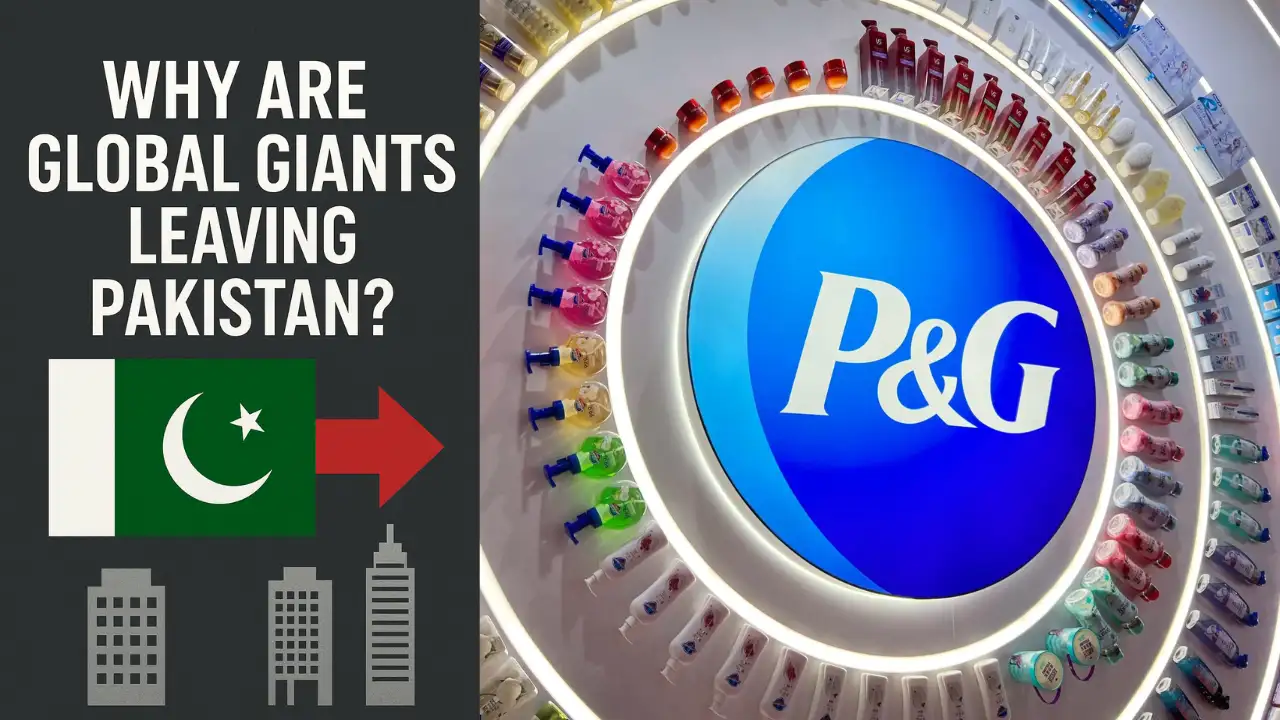By Samannay Biswas
Copyright timesnownews

In a development that has raised eyebrows across Pakistan’s business community, American multinational Procter & Gamble (P&G) announced on Thursday that it will wind down its manufacturing and commercial operations in the country, shifting instead to a third-party distribution model, said a report by Dawn. The move adds P&G to a growing list of multinational corporations (MNCs) , including Shell, Microsoft, Uber, Eli Lilly, and Yamaha Motors , that have either scaled down or exited Pakistan in recent years. This trend has triggered debate over whether Pakistan’s deteriorating economic environment is pushing foreign firms out, or if these exits are simply part of broader global realignments. ‘Not Just About Pakistan , Global Restructuring Plays a Role’ Business journalist Khurram Hussain believes the reasons behind these exits are not purely domestic. “Companies have their own global restructuring plans,” he said. “It’s not always about Pakistan’s economy. For instance, Shell has exited the retail fuel business not just here but also in Mexico and Indonesia, as part of its global shift toward high-margin segments like liquefied natural gas (LNG).” He added that multinationals often re-evaluate their geographic focus to align with profitability and operational efficiency targets , a process accelerated by global economic uncertainty. ‘Weak Rupee, High Taxes, and Competition Squeezing Margins’ Former Pakistan Business Council (PBC) CEO Ehsan Malik pointed to sector-specific factors and policy bottlenecks. “In pharmaceuticals, companies leave due to long delays in price change approvals and unethical practices by some local players,” he said. “For firms like Shell or P&G, the exit reflects a global shift in focus on certain product categories and geographies.” He also cited structural challenges such as weak enforcement of intellectual property rights, a large informal sector, and shrinking profit margins. “High taxes and the persistent depreciation of the rupee have further eroded profitability,” Malik noted, adding that these issues, combined with inconsistent regulatory enforcement, have made Pakistan less attractive for long-term foreign investment. ‘Exiting Doesn’t Mean Disappearing’ Despite headline-grabbing exits, Malik stressed that “leaving” does not necessarily mean withdrawing brands entirely from the market. “A distributor model allows companies to maintain their presence without running local operations,” he explained. “They can continue selling products while outsourcing distribution, advertising, and research to local partners.” This approach, he said, lets MNCs stay connected to Pakistani consumers while minimizing exposure to regulatory and currency risks. ‘Strategic Relocation to Regional Hubs’ According to Awais Ashraf, Director of Research at AKD Securities, several multinationals are relocating their regional operations as part of a strategic shift rather than an isolated retreat from Pakistan. “Many companies are consolidating operations into regional hubs , such as the UAE or Singapore , instead of maintaining manufacturing facilities in every country,” Ashraf said. “This allows them to leverage economies of scale, reduce overheads, and manage supply chains more efficiently.” He added that advancements in local distribution networks and digital infrastructure have made it easier for companies to operate remotely without compromising reach or efficiency. A Complex Mix of Global and Local Pressures While Pakistan’s macroeconomic instability, weak currency, and high operational costs play a significant role, analysts agree the exit trend cannot be viewed in isolation. Global corporations are reassessing their footprints amid rising costs, geopolitical shifts, and the push toward leaner, tech-enabled business models. For Pakistan, the challenge lies in addressing structural issues that erode investor confidence , from taxation and energy shortages to regulatory unpredictability. As one analyst put it, “Multinationals may not be saying goodbye to Pakistan entirely , they’re just choosing to stay without being here.”



